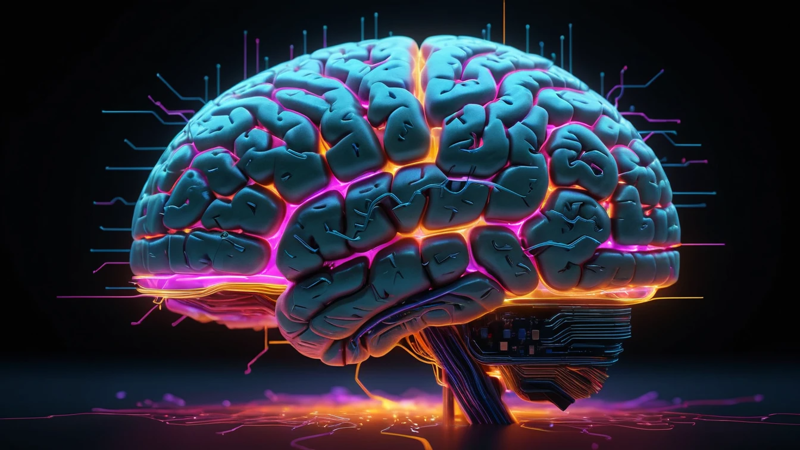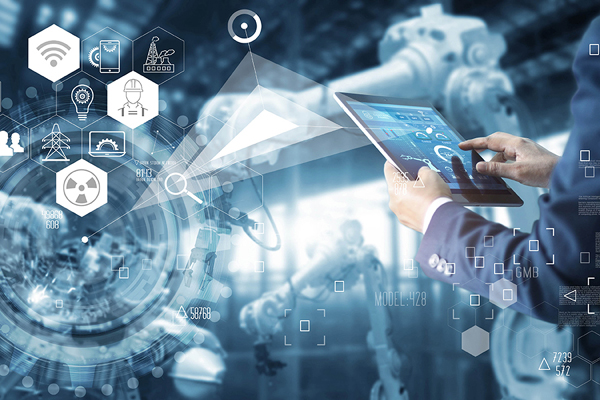Top 10 emerging technologies shaping the future. Discover what’s coming next, why it matters, and how it will change everyday life.
The top 10 emerging technologies to watch include AI, quantum computing, biotechnology, clean energy, edge computing, AR/VR, autonomous vehicles, robotics, Web3, and space tech. These innovations are set to transform industries, daily life, and global economies in the next decade.
Top 10 Emerging Technologies to Watch 👀🚀
Have you ever wondered what the world will look like in just a few years? Technology is evolving at a pace we’ve never seen before. The breakthroughs happening now are shaping how we live, work, heal, learn, communicate, and even travel. If you want to stay ahead—whether for career planning, investing, business strategy, or just curiosity—you need to keep your eye on the technologies that are rising fastest.
Below is a clear, easy-to-understand breakdown of the top emerging technologies reshaping the future right now. Let’s explore what they are, how they work, and why they matter.
Artificial Intelligence and Machine Learning 🤖
Artificial Intelligence (AI) is no longer just a tech buzzword. It’s already powering everyday tools like voice assistants, recommendation engines, and smart home devices. The next phase is AI that thinks, learns, and improves on its own, especially through machine learning and generative AI.
AI is transforming:
- Healthcare diagnostics
- Financial forecasting
- Retail personalization
- Content creation and marketing
The rise of GenAI tools means businesses can automate tasks, analyze data faster, and deliver highly personalized user experiences. AI is becoming a must-have skill in the workforce—not just a specialty.
Quantum Computing ⚛️
Quantum computing is still in its early stages, but its potential is game-changing. Unlike traditional computers that process information in bits (0 or 1), quantum computers use qubits, which allow multiple calculations at once.
This means quantum computing could:
- Break encryption algorithms
- Accelerate drug discovery
- Improve climate models
- Solve complex financial simulations
Once quantum systems become more stable and affordable, they will rewrite the limits of computing.
Comparison: Classical Computing vs Quantum Computing
| Factor | Classical Computing | Quantum Computing |
| Processing Unit | Bits (0/1) | Qubits |
| Problem-Solving Speed | Linear | Exponential |
| Ideal For | Everyday tasks | Complex scientific/analytics problems |
| Availability | Widely accessible | Limited, emerging |
Biotechnology and Gene Editing 🧬
Biotechnology has entered a new era thanks to CRISPR and advanced gene editing. Scientists can now edit DNA with precision, giving hope for curing genetic diseases, improving crop yield, and developing personalized medicine.
Key breakthroughs include:
- Lab-grown organs
- Disease-resistant crops
- mRNA vaccine platforms
- Gene therapy treatments
The promise? Longer, healthier lives and more sustainable food production.
Clean and Renewable Energy 🌱⚡
As climate change continues, the shift to clean energy is becoming urgent—not optional. Innovations in solar efficiency, hydrogen fuel, and fusion energy are setting the stage for a global energy revolution.
Notable areas to watch:
- Solar and wind storage grid systems
- Green hydrogen
- Electric vehicle battery improvements
- Nuclear fusion (yes, the sun-in-a-reactor idea)
The goal is to produce cheaper, cleaner, and more reliable energy.
Edge Computing 🌐
Edge computing processes data closer to where it is created, rather than relying only on centralized cloud servers. This reduces latency and speeds up decision-making—crucial for smart homes, IoT, autonomous cars, and drones.
Benefits include:
- Faster processing
- Lower bandwidth usage
- More secure data handling
Edge computing will grow rapidly as more devices become interconnected.
Examples of Edge Computing in Real Life
| Device/System | Role of Edge Computing | Impact |
| Smart thermostats | Process data locally to adjust temperature automatically | Energy efficiency |
| Self-driving cars | Make instant road-response decisions | Safety |
| Industrial sensors | Monitor equipment and send alerts | Reduced downtime |
Augmented Reality (AR) and Virtual Reality (VR) 🥽
AR overlays digital elements on the real world, while VR immerses users in a fully virtual environment. These technologies are transforming training, gaming, shopping, and remote collaboration.
Examples already in use:
- Virtual office meetings
- Medical simulation training
- AR-assisted learning
- Virtual clothing try-ons
As headsets get lighter and more affordable, AR/VR could replace smartphones in daily life.
Autonomous Vehicles 🚗
Self-driving cars and autonomous trucks are no longer science fiction. Using sensors, cameras, lidar, and AI decision engines, vehicles can navigate roads with minimal human input.
This affects:
- Logistics and delivery systems
- Ride-sharing and public transport
- Traffic safety and congestion
While regulation still needs to catch up, the momentum is unstoppable.
Advanced Robotics 🤖🦾
Robots are moving beyond factory assembly lines. The latest wave brings human-like dexterity, adaptability, and learning ability.
New applications:
- Elder and in-home care
- Food service automation
- Warehouse logistics
- Surgical assistance
Robots will increasingly handle repetitive and dangerous tasks, improving efficiency and safety.
Web3 and Decentralized Technology 🔗
Web3 is about giving users ownership and control—not big tech companies. It builds on blockchain to create:
- Decentralized apps (dApps)
- Token-based digital economies
- Secure identity systems
This movement could change how we bank, trade, verify identity, and share data online.
Space Technology and Commercial Exploration 🚀🌌
Space is becoming more accessible thanks to reusable rockets and private industry involvement. Companies are exploring:
- Moon bases
- Asteroid mining
- Global satellite internet
- Space tourism
The new space race is not just about exploration—it’s about resources, communication, and economic advantage.
Quick Overview of the Top 10 Technologies and Their Impact
| Technology | Key Benefit | Impact Area |
| AI/ML | Smarter automation | Every industry |
| Quantum Computing | Extreme problem solving | Science & cybersecurity |
| Biotechnology | Personalized & efficient treatment | Healthcare & agriculture |
| Clean Energy | Sustainable power | Global environment |
| Edge Computing | Faster data handling | IoT & smart devices |
| AR/VR | Enhanced experience | Education & entertainment |
| Autonomous Vehicles | Safer, efficient transport | Mobility & logistics |
| Advanced Robotics | Labor support & precision | Manufacturing & healthcare |
| Web3 | Decentralized ownership | Digital economies |
| Space Tech | New economic frontiers | Communication & exploration |
Conclusion 🎯
The top emerging technologies are not just about cool gadgets—they are transforming what’s possible in every aspect of life. Whether you’re building a career, launching a business, or investing in the future, understanding these trends gives you a clear advantage. The world is moving fast—now is the time to stay informed and stay ahead.
FAQs
- What is the most impactful emerging technology right now?
AI is currently the most impactful because it touches almost every industry and daily digital experience. It continuously evolves and improves. Its adoption is accelerating across business, healthcare, finance, and education. - How can I prepare for future technology changes?
Learn digital skills, stay updated with tech news, and consider taking online courses. Adaptability is key. Choose one area of interest and build strong, practical knowledge. - Will robots and AI replace human jobs?
Some jobs will be automated, but new jobs will also grow. Humans will shift to roles that require creativity, emotional intelligence, and strategy. The best move is to upskill. - Which industries will benefit most from emerging technologies?
Healthcare, transportation, energy, finance, and education will see major improvements. Nearly every sector will experience innovation growth. The impact will be global. - Are these technologies still too expensive to use?
Some are, but costs are decreasing fast as adoption spreads. Like smartphones, what seems expensive today becomes affordable tomorrow. The key is early awareness and preparation.








Leave a Reply